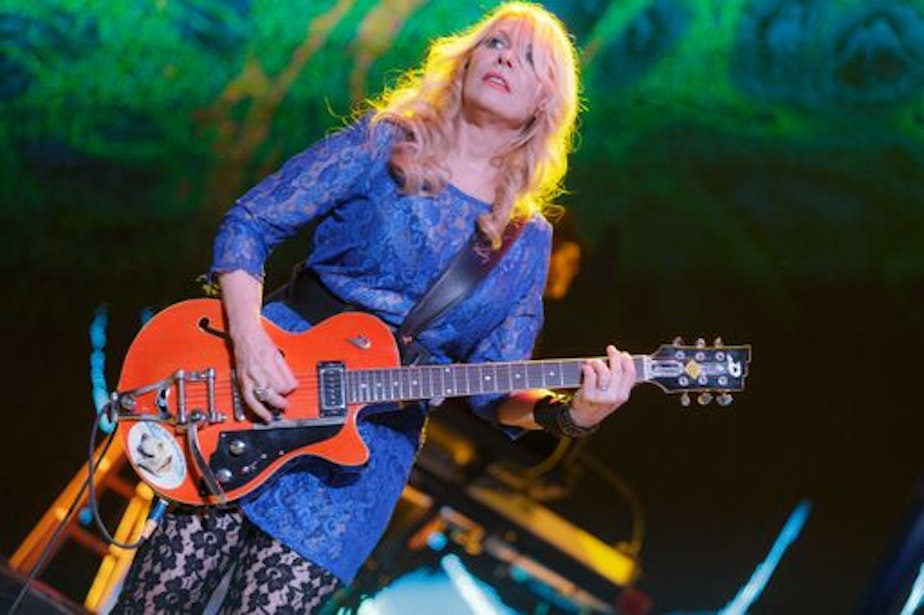Heart's Nancy Wilson steps out with first solo album

Heart is one of the biggest rock bands to come out of Seattle. It’s led by sisters Ann and Nancy Wilson. Their songs, including "Barracuda," "Crazy on You," and "Magic Man" ruled the airwaves for decades.
But now, Nancy Wilson is going solo for the first time with her latest album, titled You and Me. She spoke with KUOW about her Pacific Northwest roots.
This interview has been edited for clarity.
WILSON: Seattle will always be my homeland. We were military brats, and we moved all over the place. I first moved there as a kid. [And] we came back again. Largely because of the rain.
Early on it was Anne, who joined some guys around the Seattle area, in a band called White Heart. I was kind of sad because she was four years older, so I couldn't really go play where they were going to go play, because I was underage.
Nancy Wilson joined the band after college. Now, they were just Heart — and as the band grew, they got opportunities to play bigger venues.
Sponsored
WILSON: My first real experience in those places was loud! The band was loud. And I'd only been like an acoustic player on my own up until then. I was green. I was like just a sprout like our big huge rock stage.
We were kind of wanting to be known as a Canadian band, because at the time, it was a little bit awkward to be an American, because of things like the Vietnam War that were happening. So we were embarrassed to be Americans so we made posters that said “All the way from Vancouver, BC.”
It took one gig to change everything for Heart.
WILSON: Our manager just happened to get a call to see if we could get over to Montreal as quick as possible to open for Rod Stewart. We got to onto that big, huge stage. We started "Magic Man" and they all held up their lighters and their matches as soon as we started. We couldn't believe our eyes.
It was really a beautiful thing to see. It was like a constellation. And it was like looking into the future. All at once. And our nerves just melted away and we were so happy.
Sponsored
It was unprecedented for a successful rock band in the 1970s to be led by two women. That led to issues.
WILSON: Most of the kind of slimeball stuff never did come from within the band itself, because a band is a little fighting unit. It's like a brigade where you have each other. You support, you pull the wagons in a circle wherever you land. And the camaraderie is what saves you from all the exhaustion and the crankiness, and you keep moving.
So it's always from the outside. It's from the slimeballs in the business that put a sinister tone into the picture. Like, you know, "Hey, if you only lost more weight on your legs, you'd be perfect" or, "Hey, how about you and your sister, your lover?"
That's why "Barracuda" was written, because there was an insinuation from one of these slimeballs that just because we're cute girls together with bare shoulders on the first album cover, we're also lesbian lovers. It was just really salacious and we really resented it. We were tender souls at the time. We were not hardened or jaded at that point. Later, we kind of got the price of an education along the way, learning how to be more callous, and more self-protective.
One performance at an iconic Seattle venue brings back memories for Wilson.
Sponsored
WILSON: We were hometown heroes in Seattle. We kind of had the place wired. We played at the Aquarius Tavern, they had the paper mache planets and black lights.
Early on we brought in our PA system. The first time we used the system, the speakers caught on fire because they were made from different materials than speakers normally are made from which was supposedly superior in some way, which obviously was not! And so suddenly during "Barracuda" there was all this smoke coming out. There were flames and people were running and running to the exits — it was a famous Seattle moment, I’ll tell you that!




